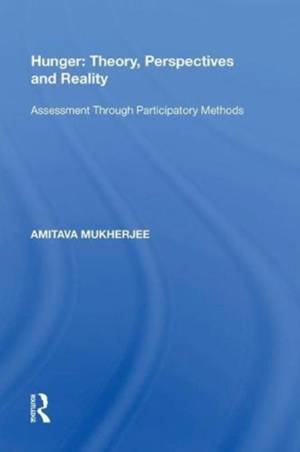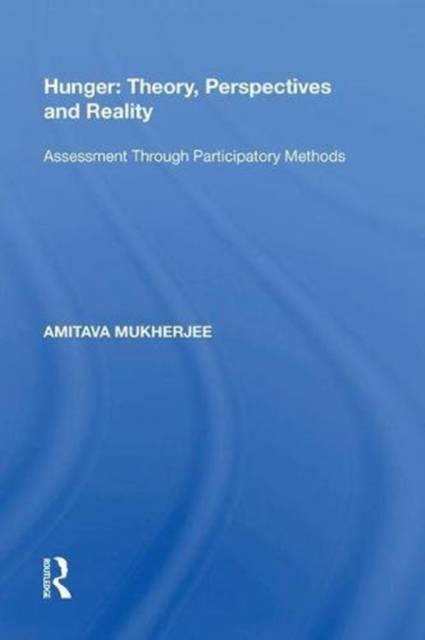
- Afhalen na 1 uur in een winkel met voorraad
- Gratis thuislevering in België vanaf € 30
- Ruim aanbod met 7 miljoen producten
- Afhalen na 1 uur in een winkel met voorraad
- Gratis thuislevering in België vanaf € 30
- Ruim aanbod met 7 miljoen producten
Zoeken
Hunger: Theory, Perspectives and Reality
Assessment Through Participatory Methods
Amitava Mukherjee
Hardcover | Engels
€ 195,95
+ 391 punten
Uitvoering
Omschrijving
Hunger is an issue which has been subject to much rigorous intellectual examination by economists, philosophers, sociologists, NGOs and governments. This volume provides a critical overview of current academic and political perspectives and then compares these views from thenon-hungry people with those of thehungry particularly from a broad range of poor communities in India. Their views are gathered using participatory rural appraisal techniques and the scale of the material presented is unprecedented. Not surprisingly, the comparisons show that the perceptions of the hungry are fundamentally different from those of the non-hungry. It makes compelling suggestions about how best policy makers can attempt to eliminate hunger based on what the hungry themselves suggest. The book also draws attention to the critical role of Common Property Resources and women in the fight against under-nutrition, which have so far been largely ignored.
Specificaties
Betrokkenen
- Auteur(s):
- Uitgeverij:
Inhoud
- Aantal bladzijden:
- 364
- Taal:
- Engels
Eigenschappen
- Productcode (EAN):
- 9780815389569
- Verschijningsdatum:
- 29/11/2017
- Uitvoering:
- Hardcover
- Formaat:
- Genaaid
- Afmetingen:
- 146 mm x 221 mm
- Gewicht:
- 666 g

Alleen bij Standaard Boekhandel
+ 391 punten op je klantenkaart van Standaard Boekhandel
Beoordelingen
We publiceren alleen reviews die voldoen aan de voorwaarden voor reviews. Bekijk onze voorwaarden voor reviews.











